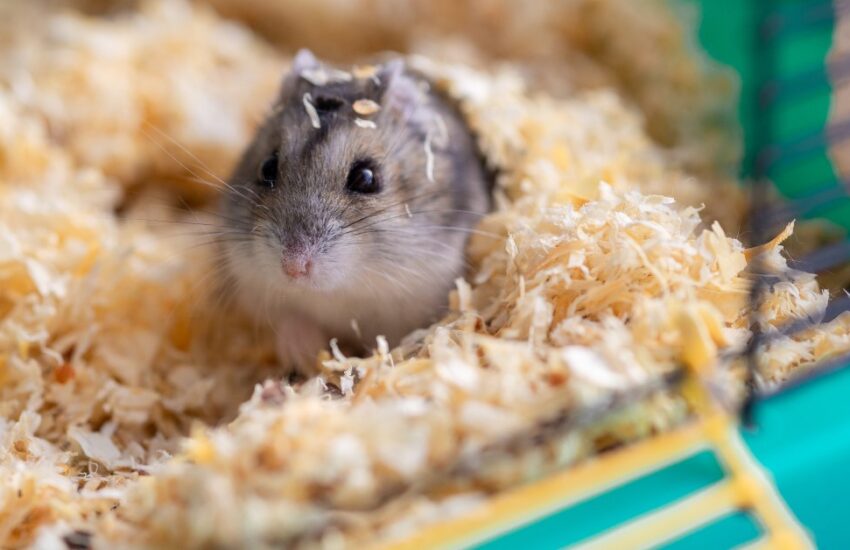Exploring Pet Hamster Breeds
Hamsters are beloved pets known for their tiny size, adorable looks, and playful personalities. Among the different **hamster breeds**, each offers unique characteristics and care requirements, allowing pet enthusiasts to find one that suits their lifestyle. In this article, we’ll explore the most popular pet hamster breeds, their traits, and what potential owners need to know before bringing one home.
Popular Hamster Breeds
When choosing a hamster, understanding various breeds and their characteristics is essential. Popular **hamster breeds** include the Syrian hamster, Campbell’s dwarf hamster, and Roborovski hamster. Each breed has distinctive features, making them suitable for different types of owners.
Syrian Hamster
The **Syrian hamster**, also known as the golden hamster, is perhaps the most recognized breed. They are larger than other hamsters, typically measuring about 5 to 7 inches in length. Known for their friendly nature, Syrian hamsters are generally solitary and should be housed alone since they can be territorial. These hamsters come in various coat types and colors, enhancing their appeal as pets. To care for a Syrian hamster, it’s important to provide a spacious cage, varied toys, and a balanced diet.

Dwarf Hamsters
Dwarf hamsters include several species, such as Campbell’s dwarf hamster and Winter White dwarf hamster. These hamsters are smaller than Syrians, averaging 3 to 4 inches in size. They are social creatures that can often live together harmoniously. However, introducing new dwarf hamsters to each other should be done cautiously to prevent territorial disputes. Dwarf hamsters are known for their playful interactions and can be very entertaining to watch.
Roborovski Hamster
The **Roborovski hamster** is the smallest pet hamster breed, often measuring just 2 inches long. Their energetic and curious nature makes them exciting pets. They are comically quick and are better suited for experienced hamster owners due to their rapid movements. Roborovski hamsters are generally very social and can live in groups, so it’s recommended to house them together from a young age. Proper cage setup with multiple tunnels, hiding spots, and running space is crucial for their happiness.
Hamster Care Essentials
Creating a suitable environment for your hamster is vital to ensure their well-being. Regardless of the breed, hamsters have specific **care requirements**, including habitat setup, diet, and socialization needs.
Habitat Setup
A spacious and well-ventilated cage is essential for every hamster. Syrian hamsters require larger cages due to their solitary nature, whereas dwarf hamsters prefer smaller, multi-level habitats that provide ample interactions. Bedding like aspen shavings or paper-based products greatly contributes to your hamster’s health by absorbing moisture and providing a digging environment. Ensure the cage has hideouts, toys, and a wheel for exercise.
Feeding Your Hamster
A well-balanced diet is essential for the health of your hamster. Commercial hamster pellets and a mix of fresh fruits and veggies will give them the nutrients they need. Offer foods like carrots, spinach, and apples in moderation to avoid digestive issues. Additionally, always ensure fresh water is available, as dehydration can lead to serious health concerns. Understanding the dietary needs based on their breed ensures a happier, healthier pet.
Socialization and Health Care
Social interaction is critical for the emotional well-being of your hamster. Depending on the breed, their need for companionship may vary. It’s important to learn about **socialization techniques** that resonate with the respective breed, especially for those susceptible to stress when handled improperly.
Socializing Your Hamster
For Syrian hamsters, regular handling can build trust, leading to a more friendly pet. Start slow; let your hamster become familiar with your smell and voice. For group-living hamsters like dwarf species, observe their interactions but avoid overwhelming them. Utilize treats to encourage positive connections, rewarding calm behavior during initial interactions.
Health Care Considerations
Regular visits with a veterinarian knowledgeable about small animals are important to maintain your hamster’s health. Keep an eye on their appetite, fur condition, and behaviors. Signs of illness can include lethargy, unusual weight loss, or dietary changes. By being proactive and observant, owners can catch potential health issues before they develop into serious problems.
Key Takeaways
- Understand the unique traits of each **hamster breed** before choosing one.
- Provide a spacious, well-equipped habitat conducive to their needs.
- Ensure a balanced diet with fresh foods and constant access to water.
- Engage in regular socialization to foster positive interactions.
- Stay vigilant regarding your hamster’s health and well-being.
FAQ
1. What is the lifespan of a pet hamster?
The lifespan of most pet hamsters ranges from 2 to 3 years, although some dwarf hamsters can live up to 4 years or more with proper care. Factors such as diet, habitat, and genetics play a significant role in determining their longevity.
2. Can hamsters live together?
While some **hamster breeds**, such as dwarf hamsters, can cohabitate peacefully, Syrian hamsters are highly territorial and should be housed alone. Always introduce hamsters gently to assess their behaviors.
3. What should I feed my hamster daily?
Hamsters should be fed a combination of high-quality commercial hamster pellets, fresh vegetables, and occasional fruits. Ensure a varied diet and avoid toxic foods like citrus or onion to maintain their health.
4. How often should I clean my hamster’s cage?
Cages should be cleaned at least once a week. Remove any uneaten food and soiled bedding regularly to maintain a clean environment. Ensure that the cage is thoroughly cleaned and dried out during scheduled cleanings to prevent odors and health issues.
5. Are hamsters good pets for children?
Hamsters can be ideal pets for children due to their small size and comparatively low maintenance needs. However, adult supervision during playtime is essential to ensure that interactions are safe and gentle, fostering a positive relationship between the children and their pets.
